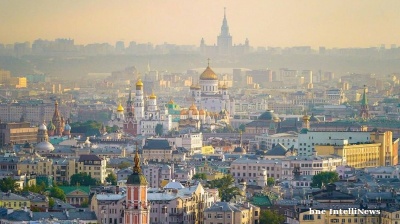Russia faces mounting pressure to expand its military involvement in Syria as its longtime ally President Bashar al-Assad confronts the most serious challenge to his rule since 2016, with militant groups having launched a major offensive across multiple provinces.
The escalation, which began on November 27, has seen opposition forces including Hayat Tahrir al-Sham (HTS) – designated a terrorist group by Russia – enter parts of Aleppo for the first time in seven years, marking a significant shift in the long-running conflict.
"Russia will continue to provide support to President Assad," Kremlin spokesman Dmitry Peskov told reporters this week, adding that Moscow is "actively studying measures needed to stabilise the situation in the region." The statement signals potential deeper involvement in a conflict that Russia had hoped to maintain at arm's length.
Syrian government forces, backed by Russian aerospace support, claim to have eliminated more than 1,600 militants in the past week. Russian forces report conducting precision strikes against terrorist targets in Idlib Province, with their Reconciliation Centre citing the destruction of ammunition depots and armoured vehicles across Idlib, Hama and Aleppo provinces.
The intensity of the fighting was highlighted when Syrian officers, surrounded by militant forces near Aleppo, required Russian military coordination to break through an enemy blockade.
Russia maintains an estimated deployment of several thousand troops in Syria, concentrated primarily around its permanent bases in Tartus, home to its only Mediterranean naval facility, and the Hmeimim air base near Latakia. These strategic installations, established during Moscow's 2015 intervention that helped turn the tide for Assad's government, serve as the backbone of Russia's military presence in the region.
While exact troop numbers remain classified, Russian forces include a mix of regular military units, special operations personnel, military police and private military contractors. Moscow's forces operate sophisticated air defence systems including S-400 missiles, conduct air strikes from the Hmeimim base and provide training and operational support to Syrian government forces.
Adding to Moscow's concerns, the Financial Times reported that Syrian opposition groups have established domestic production facilities for drones and missiles, utilising 3D printing technology and online resources to manufacture weapons in makeshift facilities.
"This is a common pattern in modern conflicts," said Broderick MacDonald, an analyst at King's College London, noting similar developments in other conflict zones. The militants have also captured military equipment, including tanks and air defence systems, during their recent offensive.
Despite pressure to escalate its involvement, Russia appears to be pursuing a measured military response. Military expert Vasily Dandykin indicated that Russia would likely continue relying on proven conventional weapons such as Kalibr cruise missiles rather than deploying new systems such as the advanced Oreshnik missile.
"The Oreshnik system is designed for different objectives, such as hardened underground command centres," Dandykin told NEWS.ru, suggesting that Russia plans to maintain its current level of engagement rather than significantly escalating its military presence.
The Syrian crisis comes at a complicated moment for Moscow, with Kremlin spokesman Peskov simultaneously managing domestic political tensions, including unusual public criticism from Chechen leader Ramzan Kadyrov directed at senior Russian law enforcement officials.
The confluence of external and internal challenges may influence Russia's appetite for deeper involvement in Syria, even as it maintains its commitment to the Assad government's survival.
For now, Russia appears to be pursuing a strategy of contained escalation, providing air support and strategic assistance while avoiding a major new commitment of forces.
However, the sophistication of militant operations and their success in penetrating key cities like Aleppo may yet force Moscow to reconsider its level of military engagement.
Features

Iran's capital Tehran showcases new "Virgin Mary" Metro station
Tehran's new Maryam metro station honours Virgin Mary with architecture blending Armenian and Iranian design elements in new push by Islamic Republic

Indonesia’s $80bn giant seawall
Indonesia’s ambition to build a colossal seawall along the northern coastline of Java has ignited both hope and heated debate. Valued at around $80bn, the project aims to safeguard the island’s coastal cities from tidal floods and erosion.

The Asian nations backing the Russian war effort – from India to Taiwan, China to Indonesia
While many Asian nations have quietly distanced themselves from Moscow in a bid to fall into line with US or European allies, several continue to engage with Russia, providing varying degrees of support that help sustain its military campaign.

The EU needs to change to stay geopolitically relevant
Leading EU figures are pushing for the unanimity rule used to make important decisions to be dropped to enable faster enlargement — one of the bloc’s main tools for geopolitical influence.


_1760544574.jpg)

